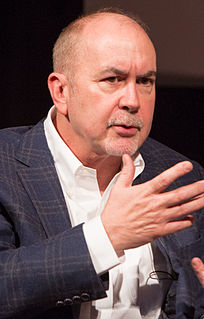A Quote by Steven Bochco
The thing that has always interested me in the kinds of shows that I do have more to do with the consequences of behavior than the behavior itself. Pulling a trigger and shooting somebody, or dismembering somebody.
Related Quotes
Pulling a gun's trigger can be an appalling act. But if it is suicidal drawing fire to save someone, it has an utterly different meaning. Placing your hand on someone's arm can be an act of deep compassion or the first step of betrayal. The punch line? It's all about context, and the biology of context is vastly more complicated than the biology of the behavior itself.
True doctrine, understood, changes attitudes and behavior. The study of the doctrines of the gospel will improve behavior quicker than a study of behavior will improve behavior. Preoccupation with unworthy behavior can lead to unworthy behavior. That is why we stress so forcefully the study of the doctrines of the gospel.
When I do something I have to do it all the way - that goes for music, with a high-hat, a snare drum, a rhyme, everything. I have to push it to the extreme. That's how I realized I have addictive behavior. Somebody told me this once, that the thing that makes me bad is the same thing that makes me good at other things.
When our embassy is attacked in Benghazi by terrorists and there is no response, you get more bad behavior. When Russia invades Ukraine and there is no response, you get more bad behavior. When Syria crosses the red line and there is no response, you get more bad behavior. When Iran launches tests of ballistic missiles and there is no response, you get more bad behavior. When North Korea attacks Sony Pictures and there is no response, you get more bad behavior. In other words, Mrs. Clinton, you cannot lead from behind. We must respond when we are attacked or provoked.



































